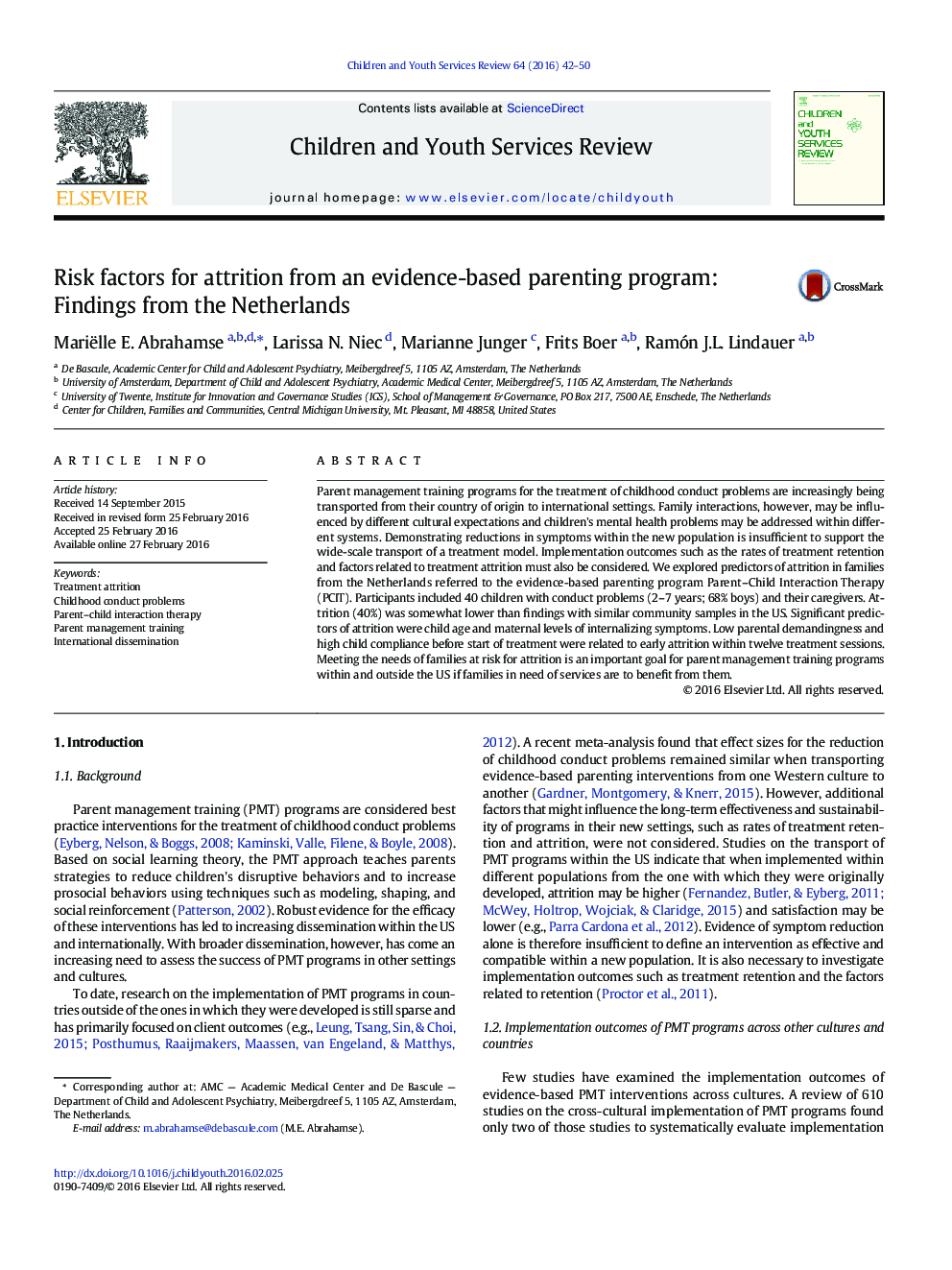| Article ID | Journal | Published Year | Pages | File Type |
|---|---|---|---|---|
| 345832 | Children and Youth Services Review | 2016 | 9 Pages |
•Treatment attrition of community-based PCIT was examined in Dutch high-risk families.•Older children and maternal internalizing psychopathology were related to treatment attrition.•Low parental demandingness and high child compliance were related to attrition earlier in treatment.•The findings suggest that risk factors may be context specific.
Parent management training programs for the treatment of childhood conduct problems are increasingly being transported from their country of origin to international settings. Family interactions, however, may be influenced by different cultural expectations and children's mental health problems may be addressed within different systems. Demonstrating reductions in symptoms within the new population is insufficient to support the wide-scale transport of a treatment model. Implementation outcomes such as the rates of treatment retention and factors related to treatment attrition must also be considered. We explored predictors of attrition in families from the Netherlands referred to the evidence-based parenting program Parent–Child Interaction Therapy (PCIT). Participants included 40 children with conduct problems (2–7 years; 68% boys) and their caregivers. Attrition (40%) was somewhat lower than findings with similar community samples in the US. Significant predictors of attrition were child age and maternal levels of internalizing symptoms. Low parental demandingness and high child compliance before start of treatment were related to early attrition within twelve treatment sessions. Meeting the needs of families at risk for attrition is an important goal for parent management training programs within and outside the US if families in need of services are to benefit from them.
